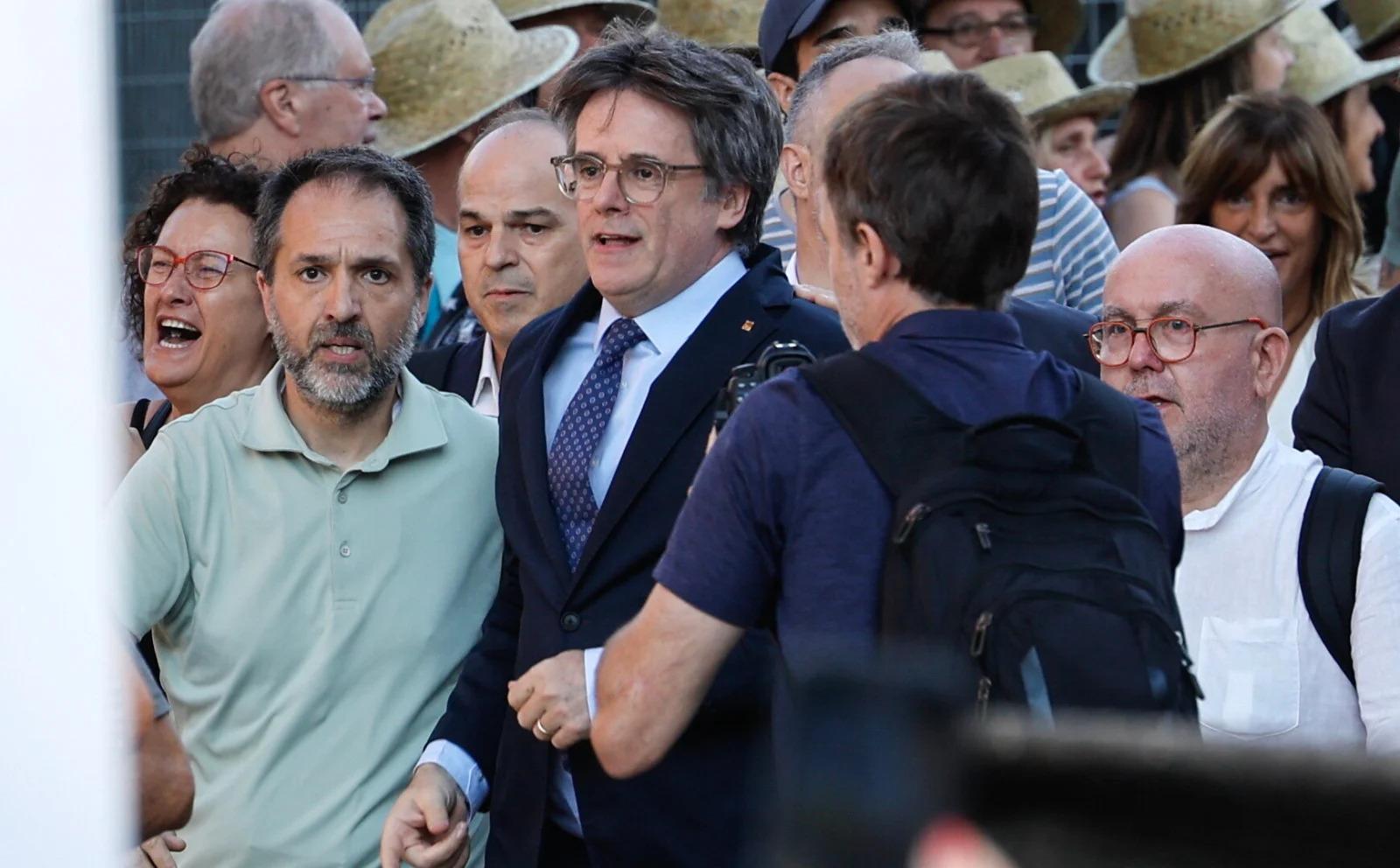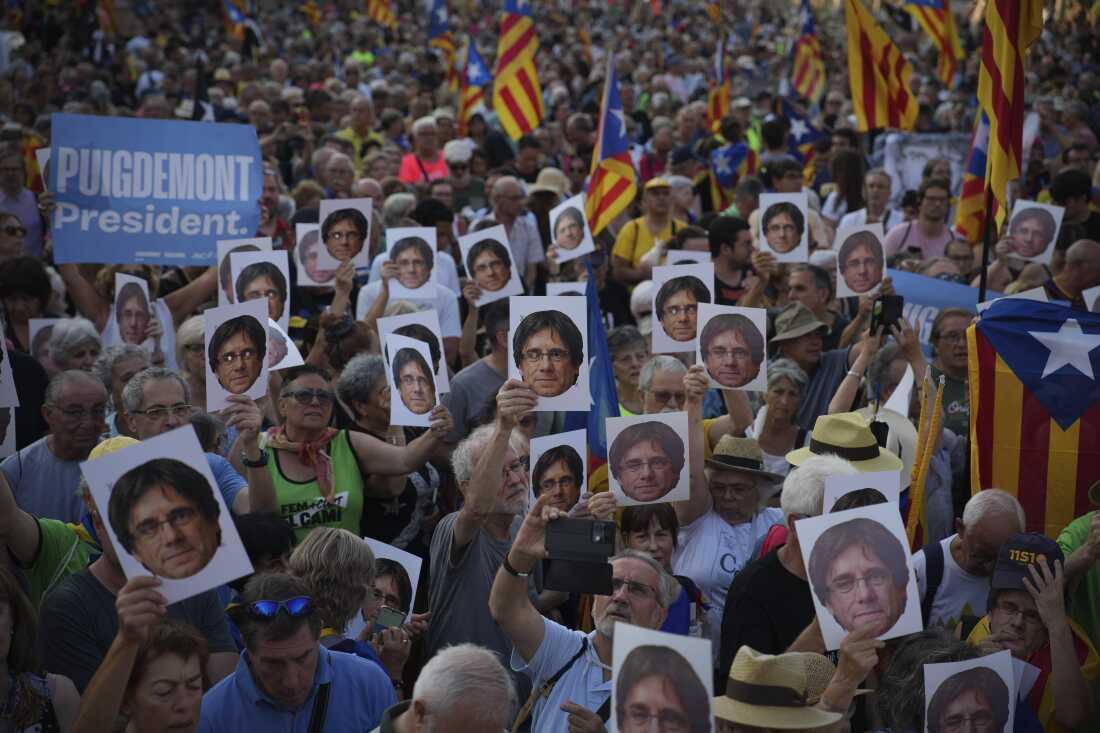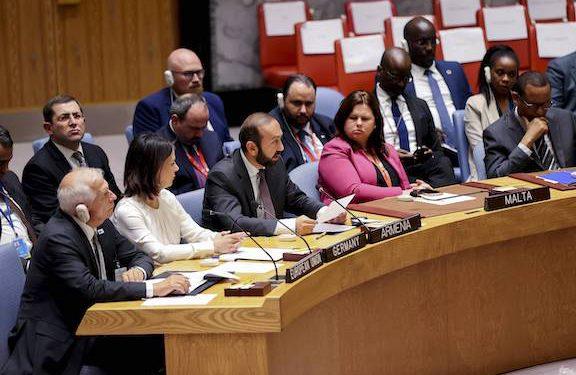Spain: Defiant leader Puigdemont evades arrest amid political turmoil Borrell's double standards amid Catalonia silence
Carles Puigdemont, former leader of Catalonia and a central figure in the region's independence movement, made a dramatic and defiant return to Barcelona after seven years in self-imposed exile. His sudden reappearance has reignited political tensions in Spain, where the memory of Catalonia's 2017 failed bid for independence still looms large.
Puigdemont's return to Catalonia was marked by a bold public address near the Catalan parliament, where he reminded his supporters of their ongoing struggle for independence, declaring, "holding a referendum is not and will never be a crime". Despite an outstanding arrest warrant for his role in the 2017 independence referendum, Puigdemont managed to evade capture and disappeared from the public eye shortly after his speech.
This unexpected move by Puigdemont has thrown the Catalan political landscape into turmoil. The timing of his return was not coincidental. By returning just before the expected investiture of Salvador Illa as the new head of the Catalan government, Puigdemont aimed to disrupt the process and assert his influence over the region's politics. Illa, a former Spanish health minister and Socialist leader, is poised to become the first non-nationalist president of Catalonia since 2010, a development that Puigdemont and his supporters view as a threat to their independence aspirations.

Puigdemont’s reappearance is also seen as an attempt to pressure Spanish authorities into applying the newly enacted amnesty law to him. Although the law was designed to pardon those involved in the 2017 secession bid, Puigdemont was excluded from its provisions on technical grounds. By returning to Catalonia, he is challenging this exclusion and seeking to draw attention to what he perceives as an injustice.
The fallout from Puigdemont’s actions has been swift and severe. The Mossos d'Esquadra, Catalonia's regional police force, launched an extensive operation to apprehend him, closing off exits from Barcelona and setting up roadblocks across the city. The chaotic scenes of police chasing a fugitive leader have only added to the tensions in the region, with clashes erupting between Puigdemont's supporters and the police outside the Catalan parliament.
The situation is further complicated by internal divisions within the pro-independence movement. Puigdemont's Junts per Catalunya (JxCat) party has positioned itself as the main force for independence, while its rival, the Catalan Republican Left (ERC), has been accused of compromising with Spanish unionism by supporting Illa's investiture. Puigdemont’s return has intensified these divisions, with ERC finding itself in the uncomfortable position of controlling the police force tasked with arresting their former leader.
Puigdemont's dramatic escape from the authorities, allegedly with the assistance of rogue elements within the police force, has only deepened the crisis. The arrest of two Mossos officers, including the owner of the car believed to have facilitated Puigdemont's getaway, has raised questions about loyalty within the police force and the extent of Puigdemont's influence.
The implications of Puigdemont’s return extend beyond Catalonia. His arrest, if it occurs, could destabilize the fragile alliance between the Spanish government and his Junts party, which is crucial for the Socialist-led national government’s legislative agenda. The Spanish Supreme Court’s insistence that Puigdemont be detained underscores the legal and political challenges that his return has created.
Puigdemont’s return to Catalonia is a high-stakes gamble. It is a bid to revitalize a flagging independence movement, challenge the Spanish government's authority, and secure its place in Catalonia’s political future. However, it also risks further polarizing the region and deepening the divisions that have plagued Catalonia since 2017.

The separatist leader’s future remains uncertain. Whether Puigdemont will be caught and whether the amnesty law will ultimately apply to him are open questions. What is clear is that his return has reignited a fierce debate over Catalonia’s independence and the region’s relationship with the rest of Spain.
For Puigdemont, this may be his final attempt to secure a legacy as the leader who brought Catalonia to the brink of independence. For Spain, it is yet another chapter in a long and contentious struggle over the future of one of its most restive regions.
Borrell's double standards amid Catalonia silence
Josep Borrell, EU High Representative for Foreign Affairs and Security Policy, has recently faced scrutiny for his pro-Armenian stance, which many in Azerbaijan see as deeply biased and unfair.
Despite the significant geopolitical events unfolding in his home country, Spain, Borrell has remained conspicuously silent, a stark contrast to his vocal criticism of Azerbaijan.
For those unfamiliar with the situation, Borrell's pattern of anti-Azerbaijani and pro-Armenian remarks has raised serious questions about his objectivity and the EU's commitment to neutrality. His statements have often been seen as misinformed and irrelevant, particularly when Azerbaijan takes steps to assert its sovereignty and enforce its laws within its own territories. These actions, which are within Azerbaijan's rights, have been met with disproportionate and, some would argue, unwarranted criticism from Borrell and the EU.

The contrast becomes even more glaring when considering Borrell's silence on the ongoing issues in Spain, particularly the Catalan independence movement. Catalonia's quest for independence and the subsequent response from the Spanish government has been fraught with human rights concerns, yet Borrell, a Spaniard himself, has remained silent. This double standard is not lost on Azerbaijan, where the EU and Borrell's credibility are increasingly questioned.
Azerbaijanis are skeptical that Borrell will ever address the issue of Catalonia's freedom drive or the broader human rights concerns within Spain. His failure to comment on these issues while criticizing Azerbaijan highlights the EU's inconsistent approach to international law and human rights. This inconsistency is a glaring example of the double standards that Azerbaijan has often pointed out. The saying "people who live in glass houses shouldn't throw stones" seems particularly apt in this context.
At a UN session, Borrell sat alongside the Armenian delegation, pointing fingers at Azerbaijan for its efforts to restore order and eliminate separatist movements within its borders. One wonders if, during this session, Borrell considered Spain's own treatment of Catalonia's leader, Carles Puigdemont, who was pursued across Europe for his role in the region's independence movement. The parallels between Azerbaijan's situation and Spain's handling of Catalonia are hard to ignore, yet Borrell seems to overlook them entirely.
Azerbaijan's displeasure with Borrell is not just about his pro-Armenian bias but also about the broader implications of his actions - or inactions - on the EU's role as a supposed neutral arbiter in international affairs. His selective criticism undermines the EU's credibility and raises serious doubts about its commitment to fairness and justice in its foreign policy.








